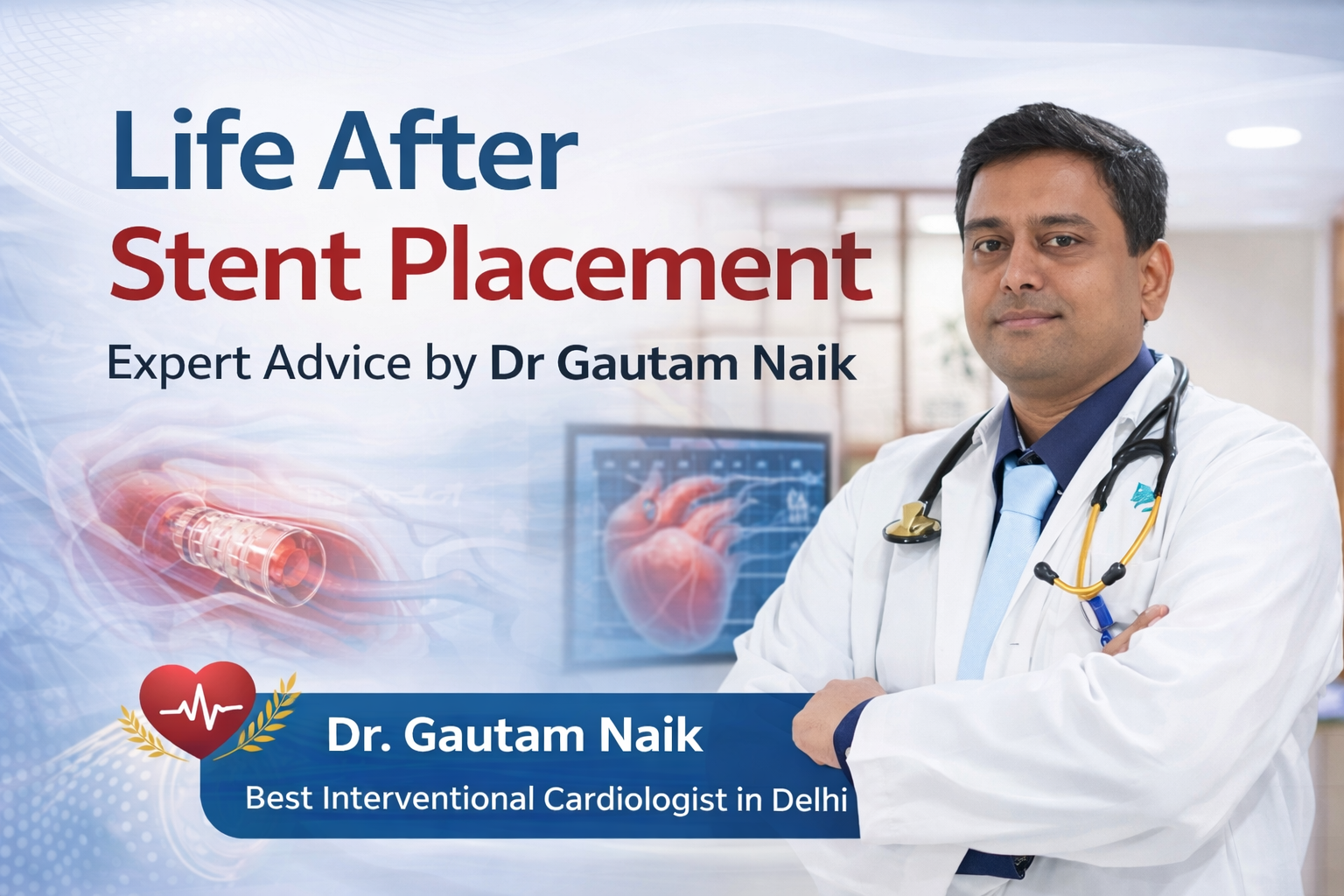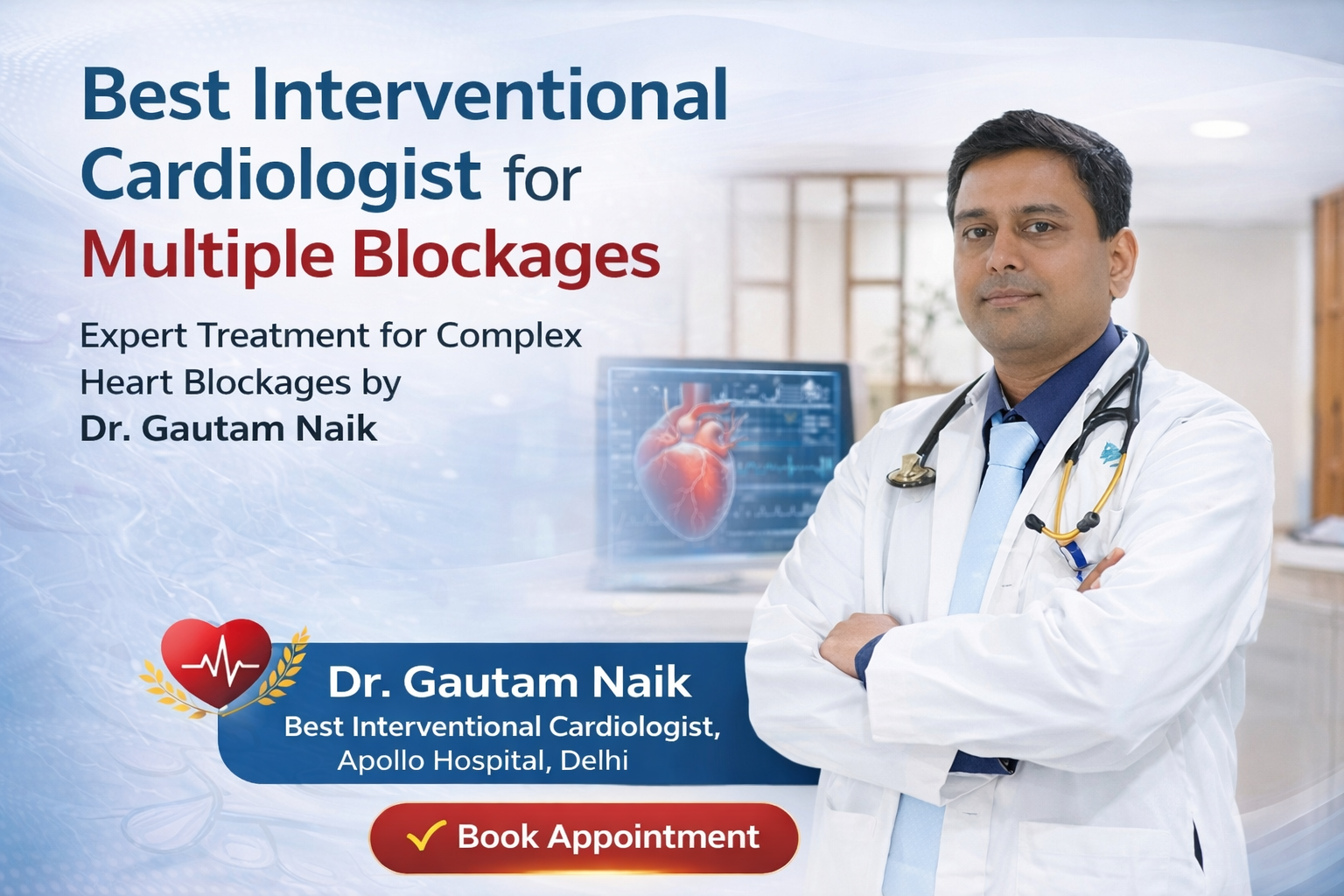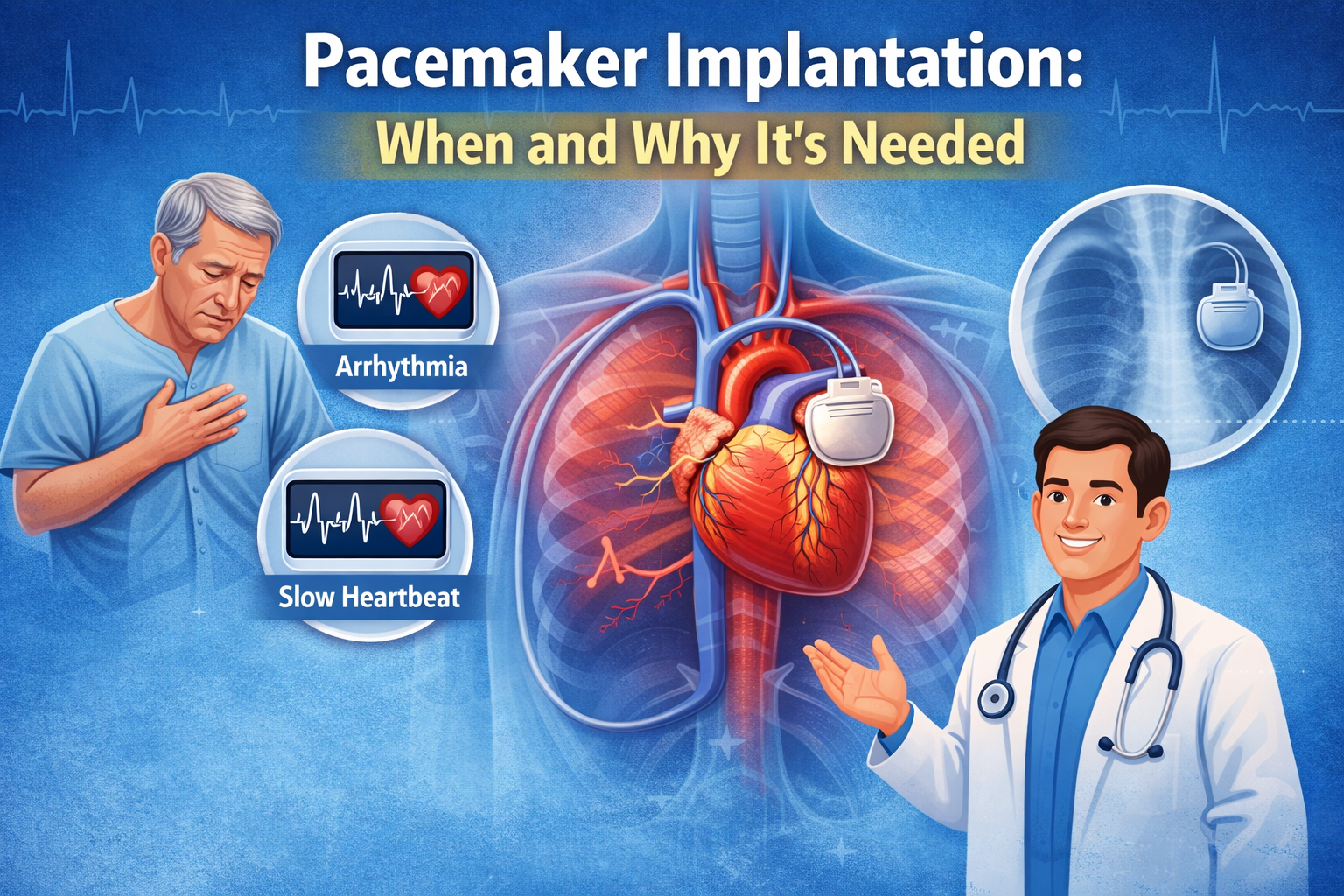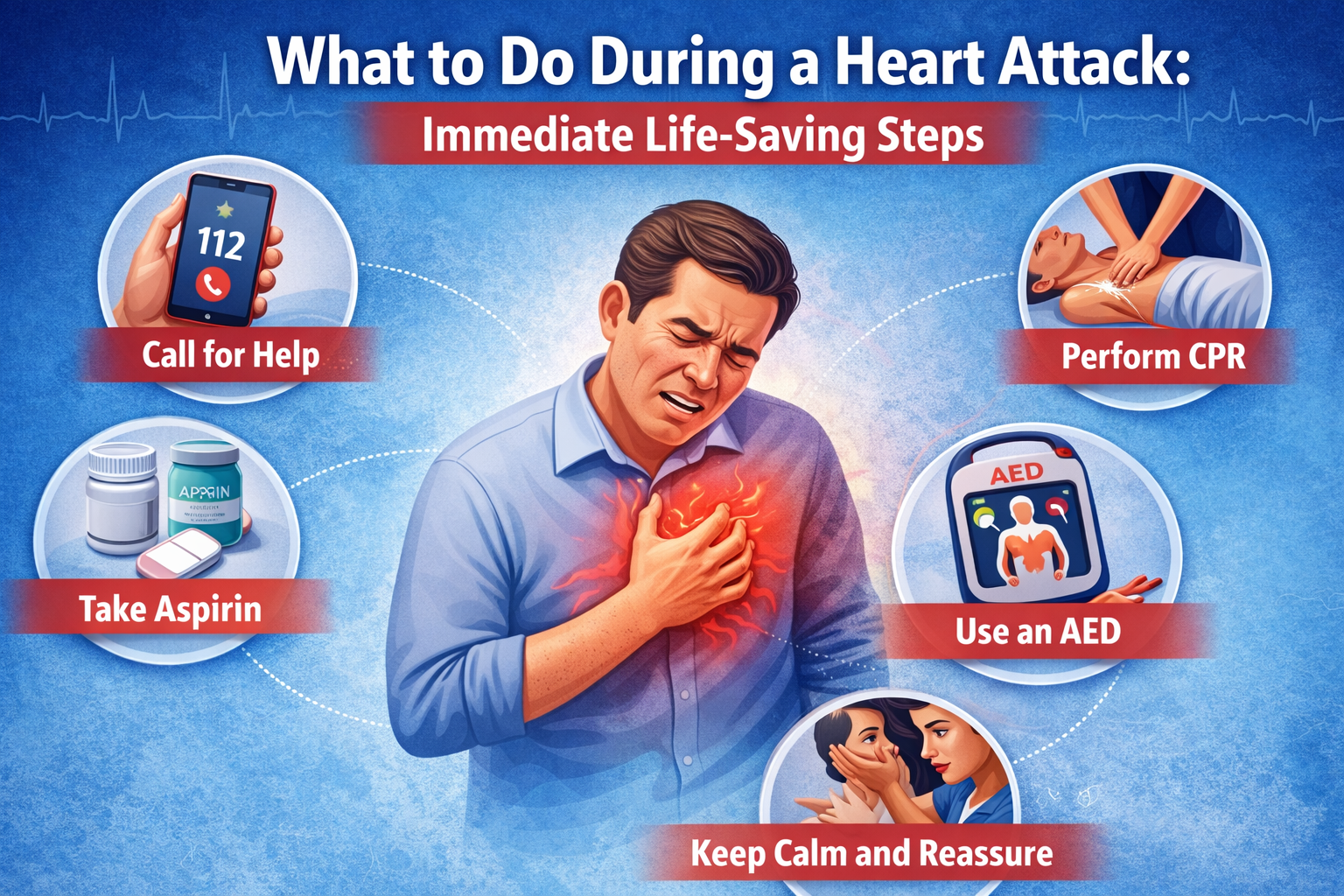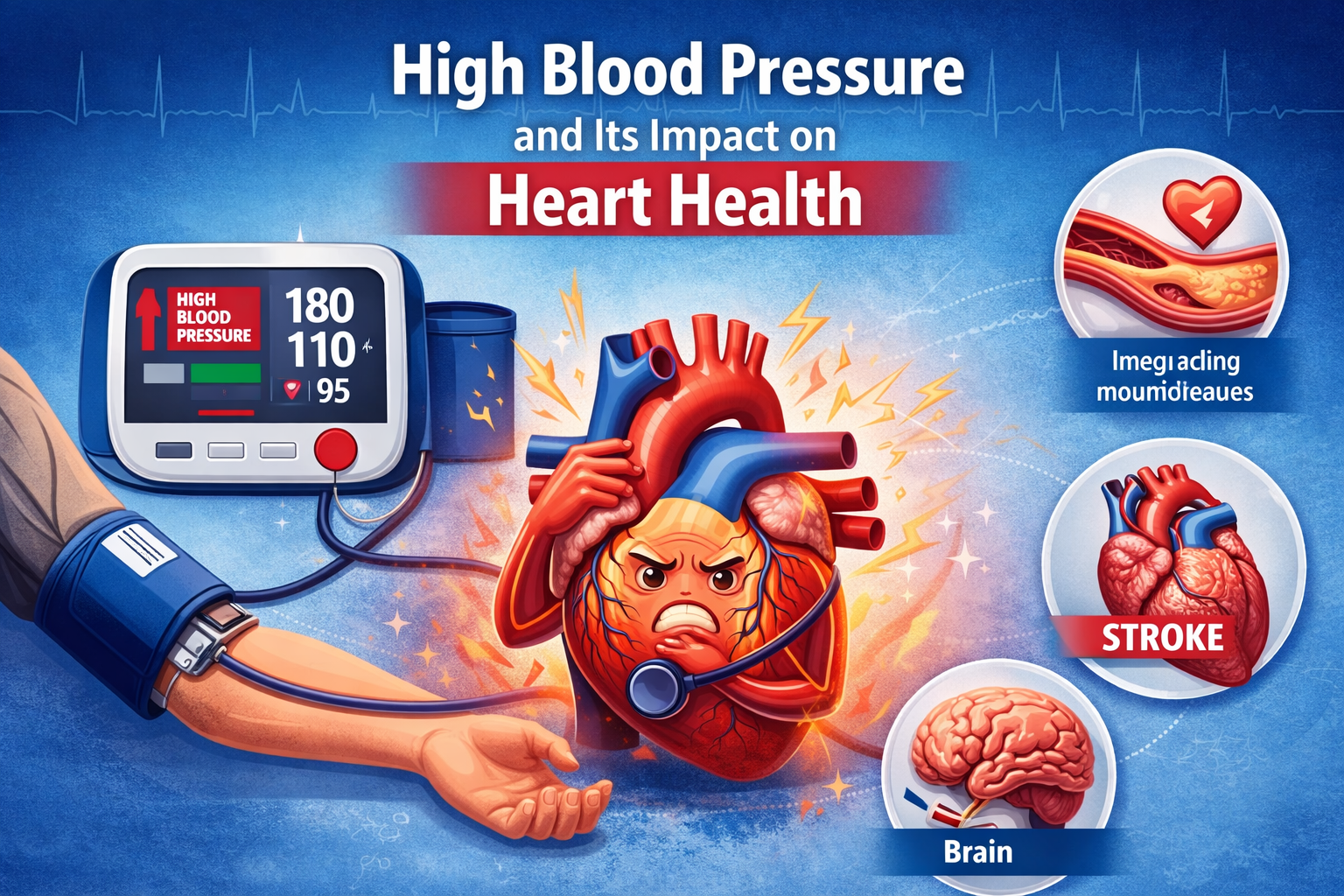How Cholesterol Is Linked to Heart Disease
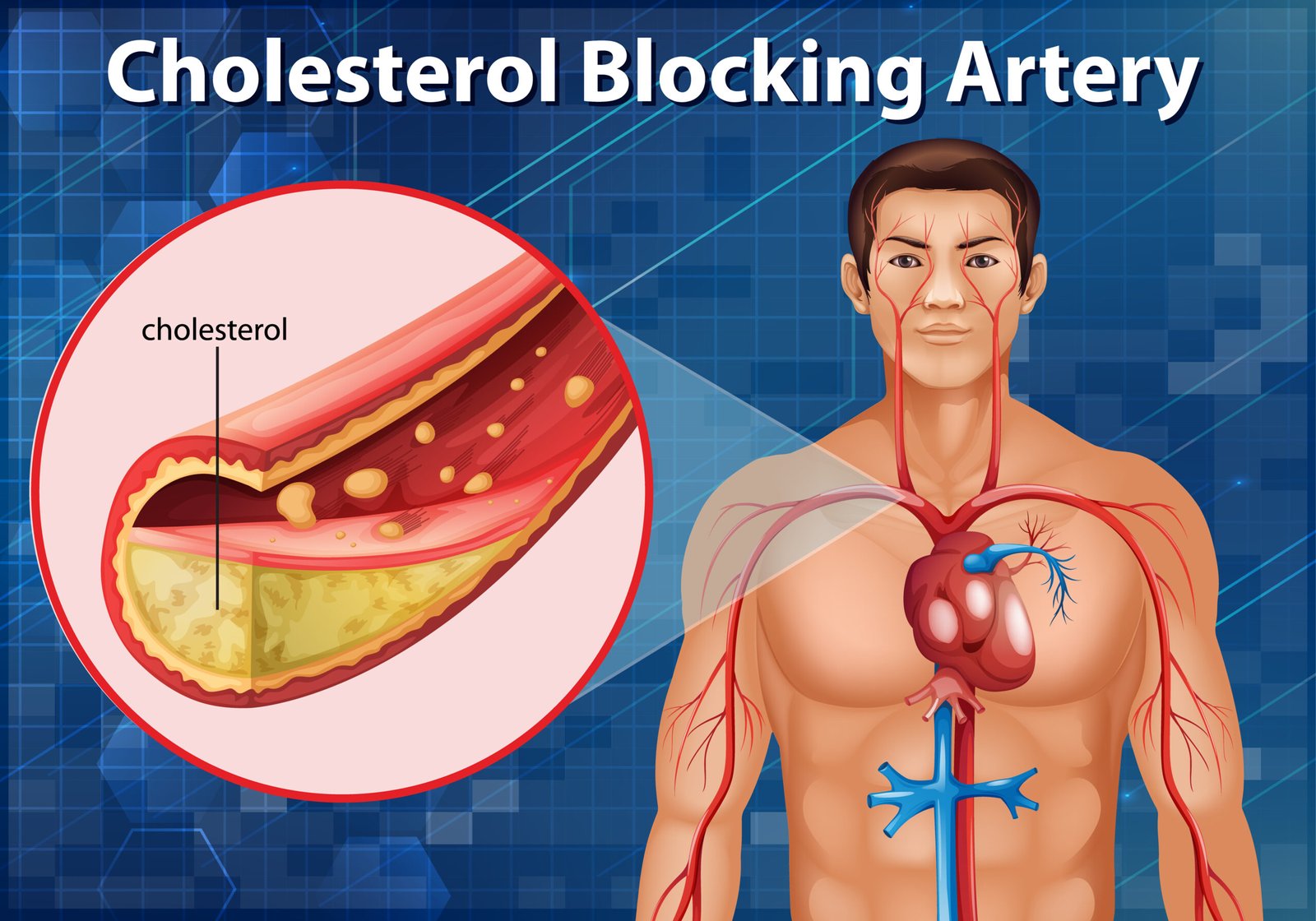
Introduction
Heart disease is one of the leading causes of death in India and across the globe. Among its many risk factors, cholesterol plays a central role in the development of cardiovascular problems. While cholesterol is vital for healthy body functioning, an imbalance can significantly increase the risk of heart attacks, strokes, and other vascular complications.
This blog explores the connection between cholesterol and heart disease, how it affects your arteries, what the scientific evidence shows, and the steps you can take to protect your heart health. Toward the end, we highlight the role of expert medical care and why Dr. Gautam Naik, Senior Consultant Interventional Cardiologist at Apollo Hospital, Delhi, is considered one of the best cardiologist in delhi for managing cholesterol-related heart disease.
What Is Cholesterol?
Cholesterol is a fatty, wax-like substance naturally produced by the liver. It is also present in many animal-based foods we eat. Cholesterol has several important roles:
- Helps in the formation of cell membranes.
- Acts as a building block for hormones such as estrogen, testosterone, and cortisol.
- Aids in the production of vitamin D.
- Helps in the creation of bile acids that digest fats.
Despite its vital functions, too much cholesterol circulating in the blood becomes harmful, particularly when it builds up in artery walls.
Types of Cholesterol
Understanding the different forms of cholesterol helps explain how they influence heart health.
- LDL (Low-Density Lipoprotein)
- Known as “bad cholesterol.”
- High levels cause deposits in arteries, leading to blockages.
- HDL (High-Density Lipoprotein)
- Known as “good cholesterol.”
- Helps transport excess cholesterol back to the liver, where it is broken down and eliminated.
- Triglycerides
- A type of fat in the blood that, when elevated, can increase the risk of heart disease.
- Often linked with obesity, diabetes, and metabolic syndrome.
- Total Cholesterol
- The combined value of LDL, HDL, and other lipid particles.
For a healthy heart, low LDL, high HDL, and controlled triglycerides are the ideal balance.
How Cholesterol Contributes to Heart Disease
The harmful link between cholesterol and cardiovascular disease develops through a process called atherosclerosis. This is a gradual buildup of fatty deposits, or plaques, in the walls of arteries.
Here’s how it happens step by step:
- Endothelial damage – The inner lining of arteries gets injured due to high blood pressure, smoking, or diabetes.
- LDL penetration – LDL cholesterol enters the damaged area and gets oxidized.
- Immune response – The body treats oxidized LDL as harmful, sending white blood cells to engulf it, forming foam cells.
- Plaque formation – Over time, foam cells, cholesterol, and other materials build up, narrowing the artery.
- Plaque rupture – In some cases, the plaque may burst, triggering clot formation that blocks blood flow.
If this blockage occurs in the coronary arteries, it causes a heart attack. If it happens in arteries supplying the brain, it causes a stroke.
The Scientific Evidence
Decades of research confirm the strong association between cholesterol and heart disease.
- Studies consistently show that high LDL cholesterol increases the risk of heart disease, while higher HDL levels lower it.
- Large clinical trials demonstrate that lowering LDL cholesterol with medications like statins reduces heart attacks and cardiovascular deaths.
- Global health reports estimate that raised cholesterol is responsible for millions of deaths annually, making it one of the most significant preventable risk factors.
It is also important to note that not every patient with a heart attack has very high cholesterol levels. Other factors like diabetes, hypertension, smoking, and genetic predisposition also play major roles. Still, cholesterol remains a key modifiable factor.
Risk Factors That Worsen Cholesterol Problems
Certain lifestyle and genetic conditions amplify the risk of heart disease associated with cholesterol:
- High intake of saturated and trans fats.
- Sedentary lifestyle and lack of exercise.
- Obesity and metabolic syndrome.
- Poorly controlled diabetes.
- High blood pressure.
- Smoking and excessive alcohol consumption.
- Family history of high cholesterol or heart disease.
- Advancing age and hormonal changes.
Screening and Diagnosis
A simple lipid profile test is used to measure cholesterol levels. It includes:
- Total cholesterol
- LDL cholesterol
- HDL cholesterol
- Triglycerides
Adults should ideally get their cholesterol checked every 4–6 years, and more frequently if they have additional risk factors. Regular screening helps in early detection and timely management.
How to Manage Cholesterol for Heart Health
Lifestyle Modifications
- Healthy diet
- Reduce saturated fats (found in red meat, butter, cheese).
- Eliminate trans fats (found in packaged snacks, fried foods).
- Increase intake of whole grains, fruits, vegetables, nuts, and lean proteins.
- Include omega-3 fatty acids from fish or flaxseeds.
- Exercise regularly
- At least 150 minutes of moderate aerobic exercise per week.
- Activities like brisk walking, swimming, or cycling help raise HDL and lower LDL.
- Maintain a healthy weight
- Even a small amount of weight loss improves cholesterol and reduces strain on the heart.
- Quit smoking
- Smoking lowers HDL and damages arteries, accelerating heart disease.
- Limit alcohol consumption
- Excess alcohol raises triglyceride levels.
Medications
If lifestyle changes are insufficient, doctors may prescribe medications such as:
- Statins – First-line treatment, highly effective at lowering LDL.
- Ezetimibe – Reduces absorption of cholesterol in the intestine.
- PCSK9 inhibitors – Used in patients with very high cholesterol or genetic conditions.
- Fibrates and omega-3 fatty acids – To manage high triglycerides.
The choice of treatment depends on the patient’s cholesterol profile, overall risk, and medical history.
Preventive Care and Regular Monitoring
- Cholesterol levels should be monitored periodically after starting treatment.
- Blood pressure, blood sugar, and weight should also be tracked.
- Preventive cardiology focuses not just on numbers, but also on lifestyle education and risk reduction.
Expert Care: Dr. Gautam Naik at Apollo Hospital, Delhi
Managing cholesterol and heart disease often requires a combination of preventive strategies, advanced diagnostics, and interventional procedures. For this, consulting a trusted expert is vital.
Dr. Gautam Naik is regarded as one of the best cardiologists in Delhi. As a Senior Consultant Interventional Cardiologist at Apollo Hospital, Delhi, he specializes in:
- Complex coronary interventions.
- Structural heart procedures.
- Preventive and lifestyle cardiology.
- Management of high-risk patients with cholesterol disorders and advanced heart disease.
With extensive training, both in India and internationally, Dr. Naik brings world-class expertise to patient care. His approach integrates cutting-edge treatment with patient education, ensuring long-term heart health.
Conclusion
Cholesterol plays a crucial role in the development of heart disease. While your body needs cholesterol for essential functions, excess LDL and high triglycerides set the stage for atherosclerosis and cardiovascular events.
The good news: cholesterol is manageable. With timely screening, lifestyle adjustments, and proper medical guidance, you can reduce your risk of heart disease dramatically.
For those seeking the highest standard of cardiac care, Dr. Gautam Naik at Apollo Hospital, Delhi, offers expert consultation and treatment, making him a trusted choice for patients looking to manage cholesterol and safeguard their heart health.

